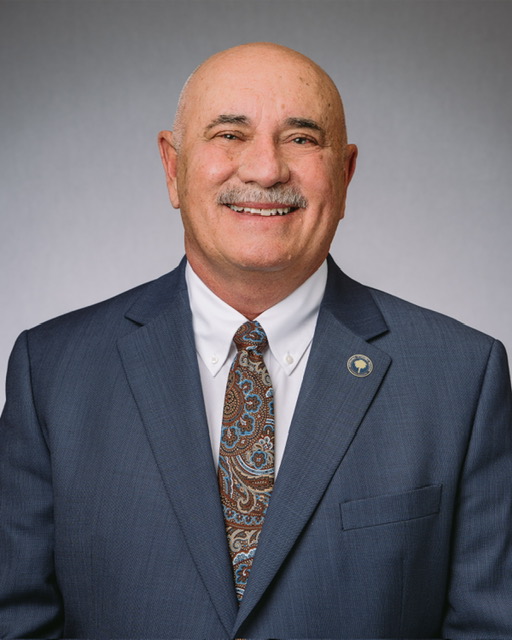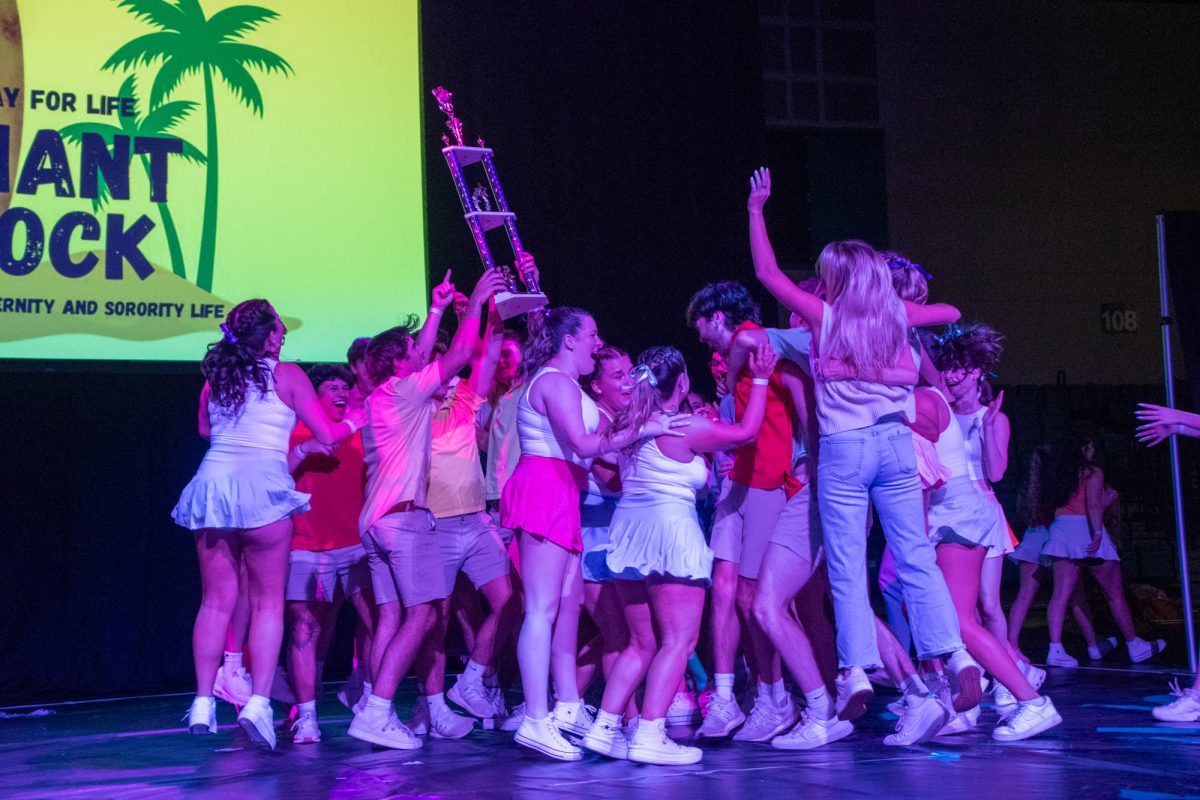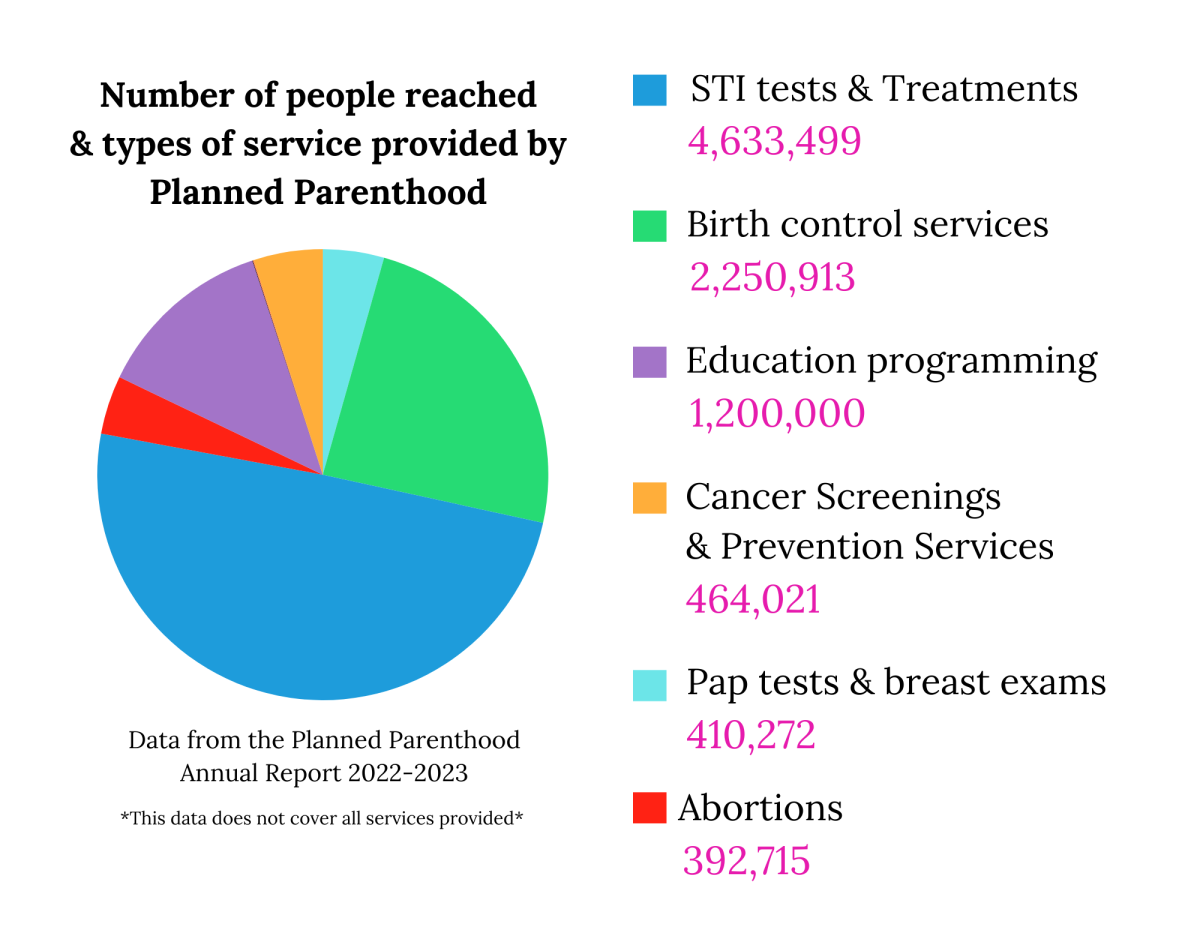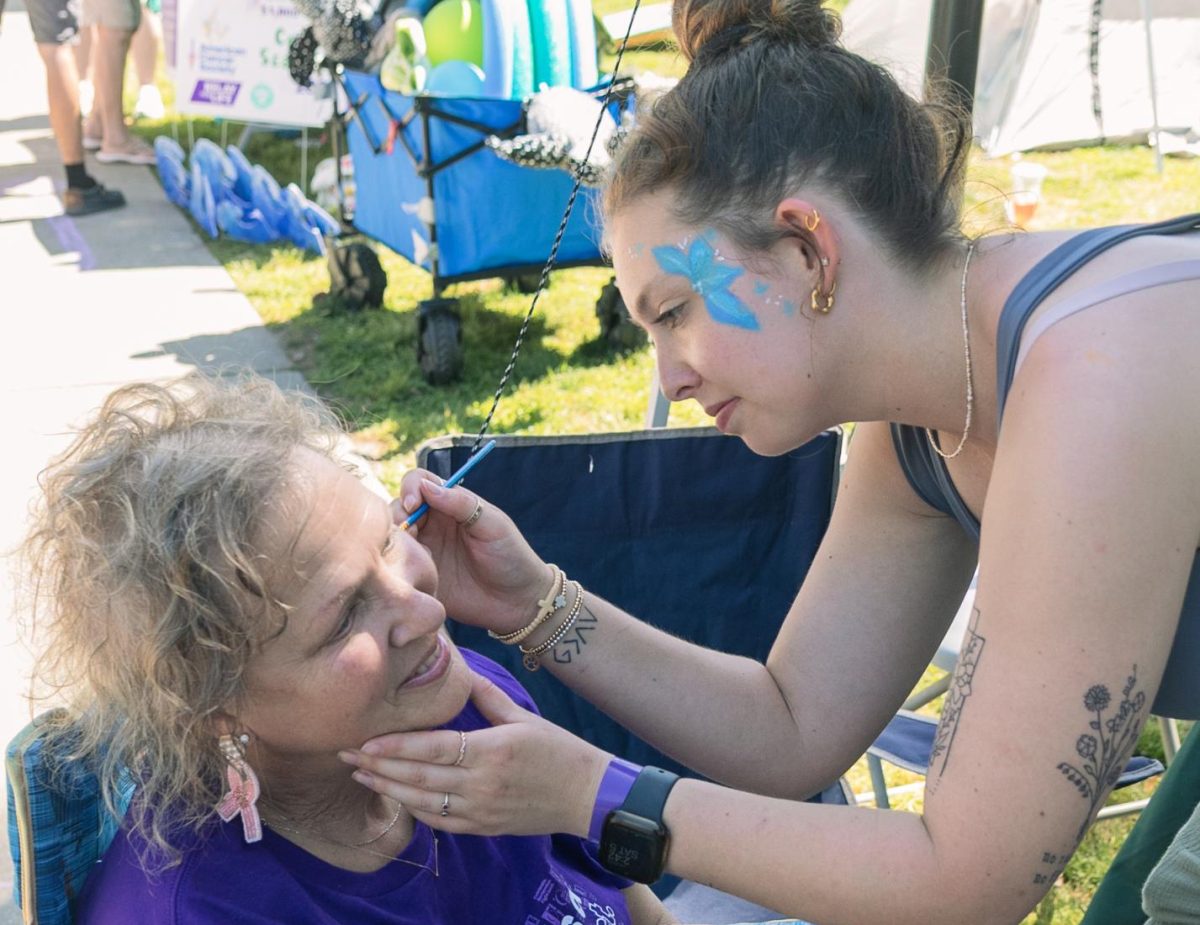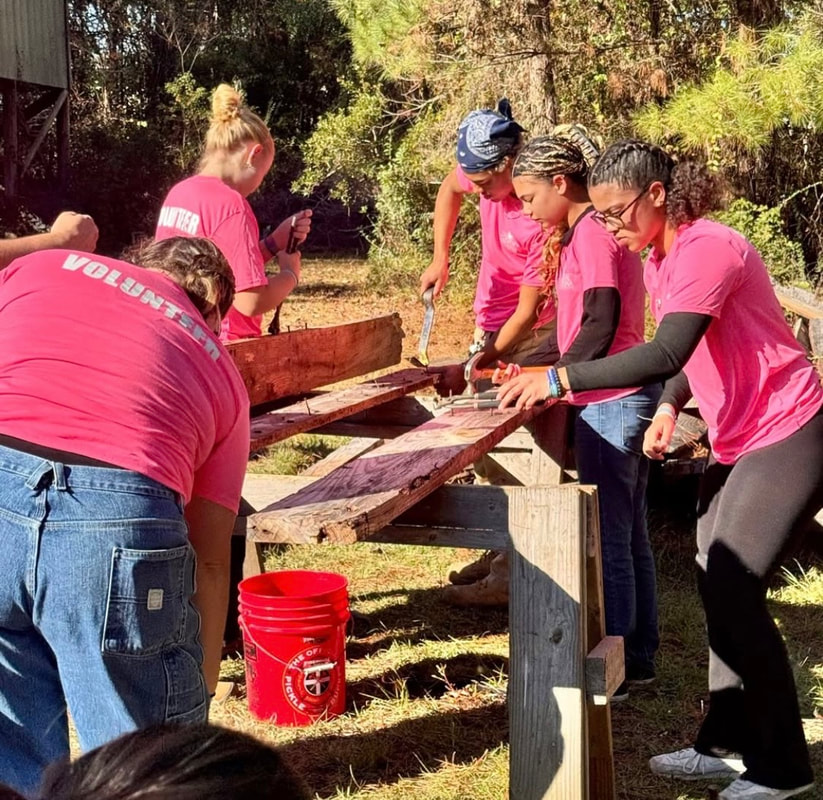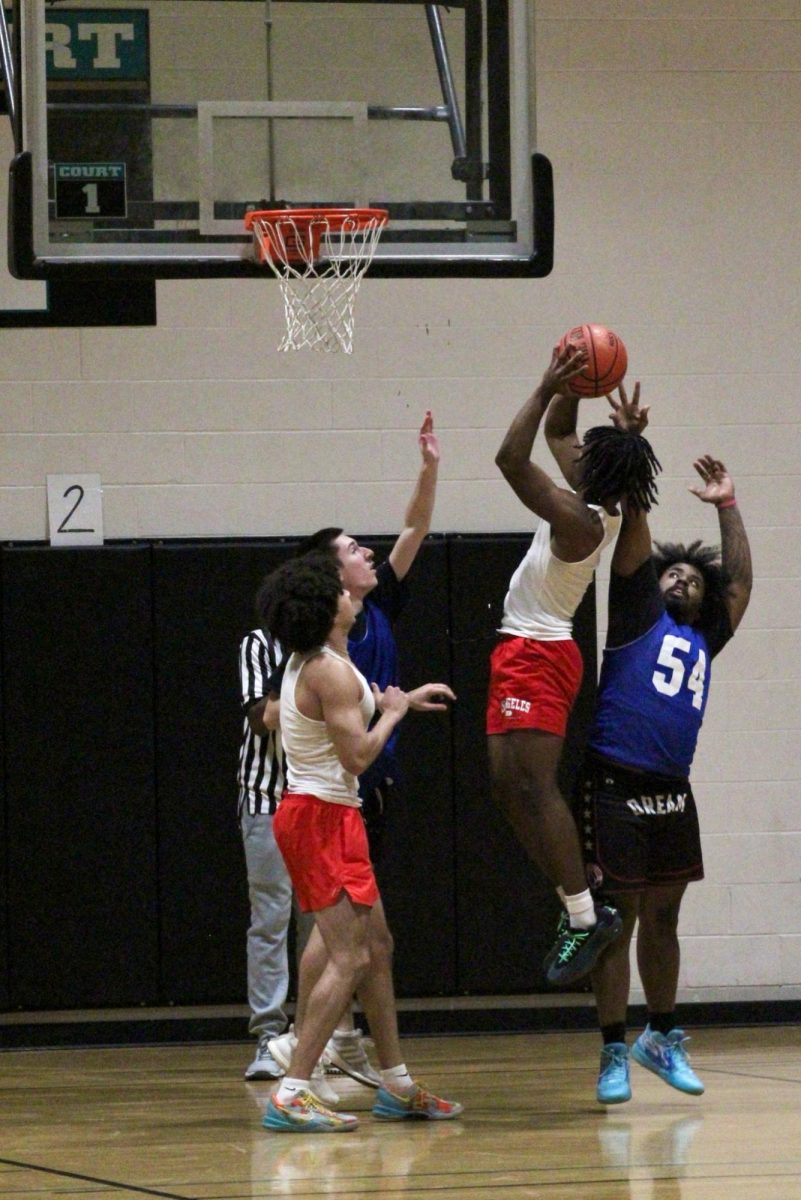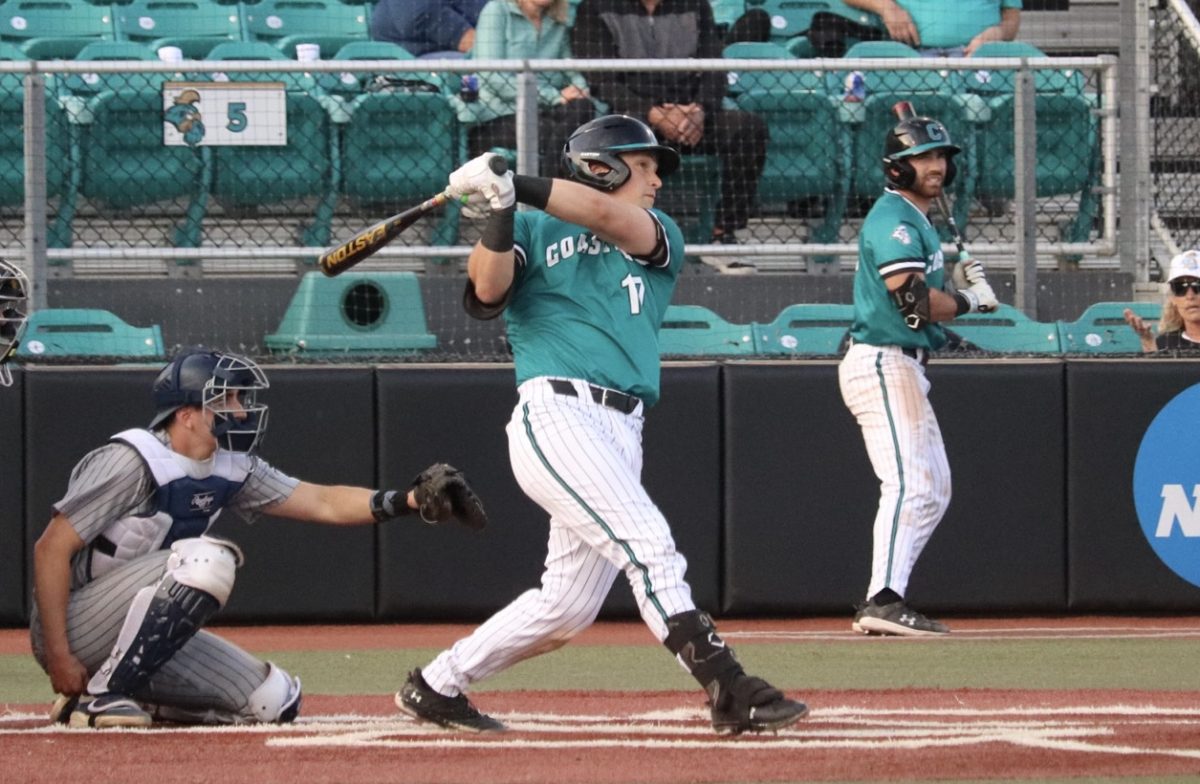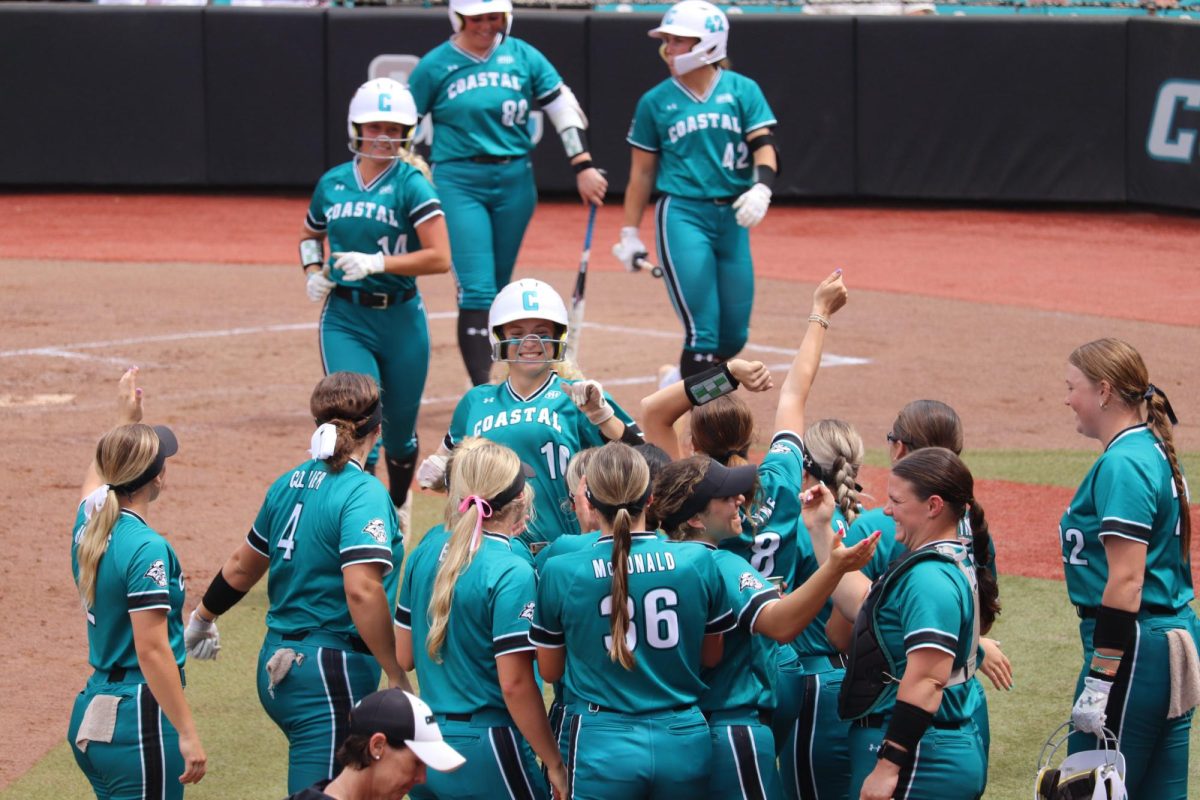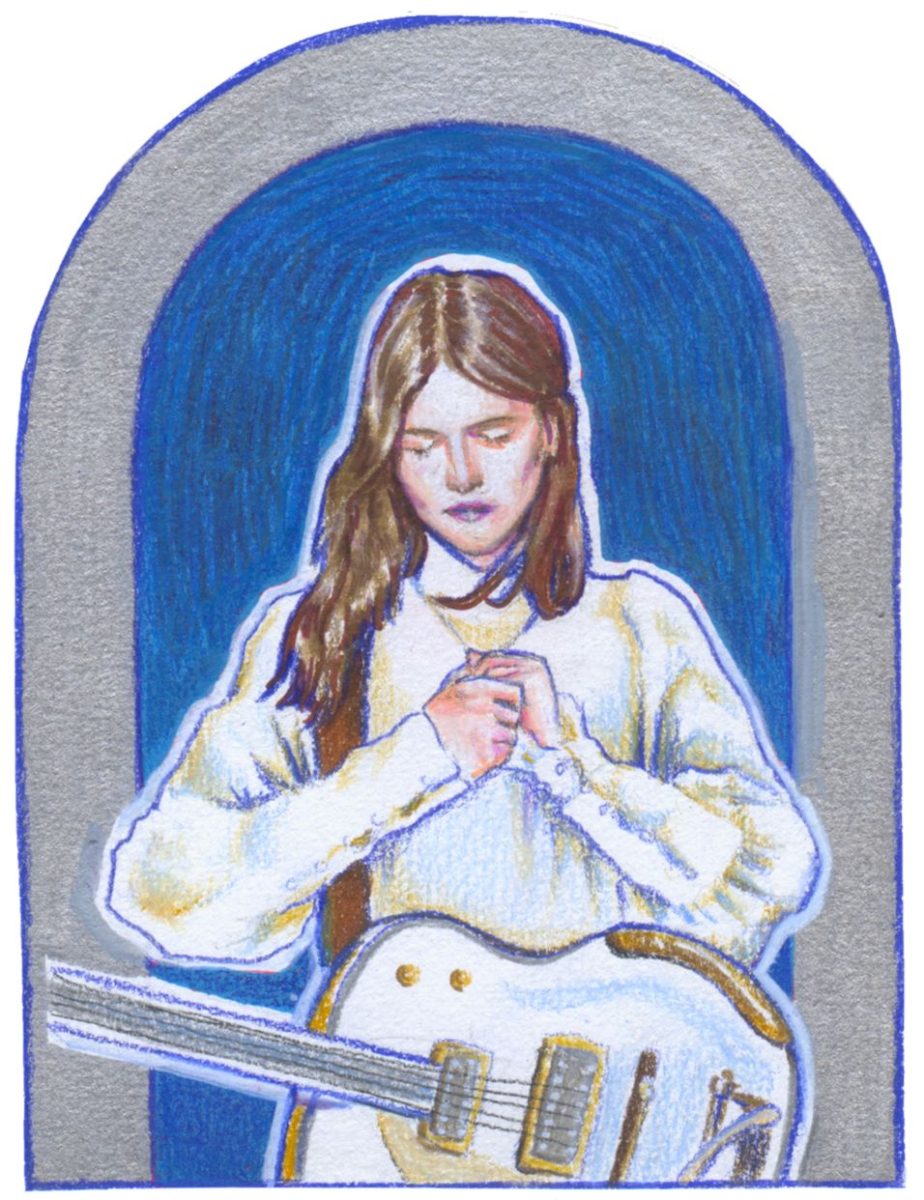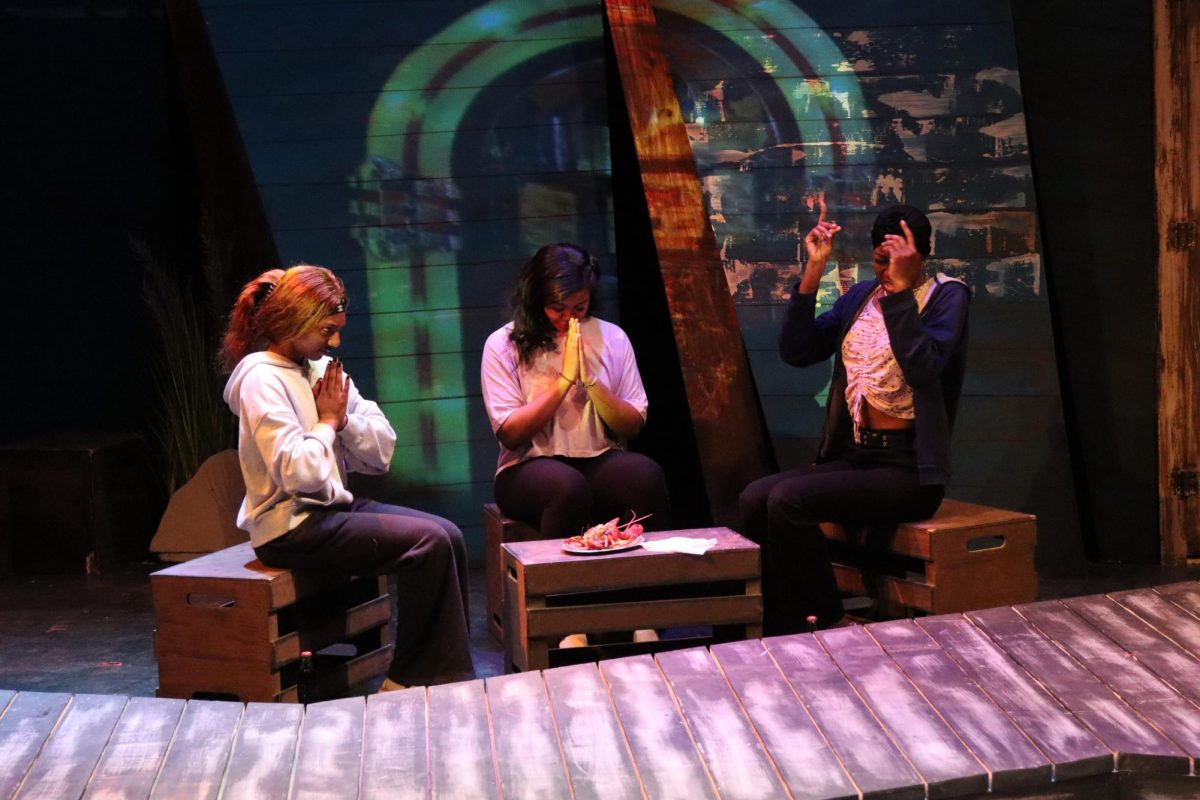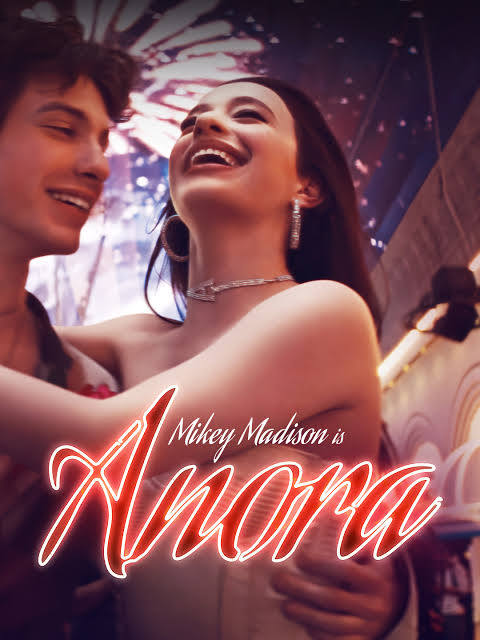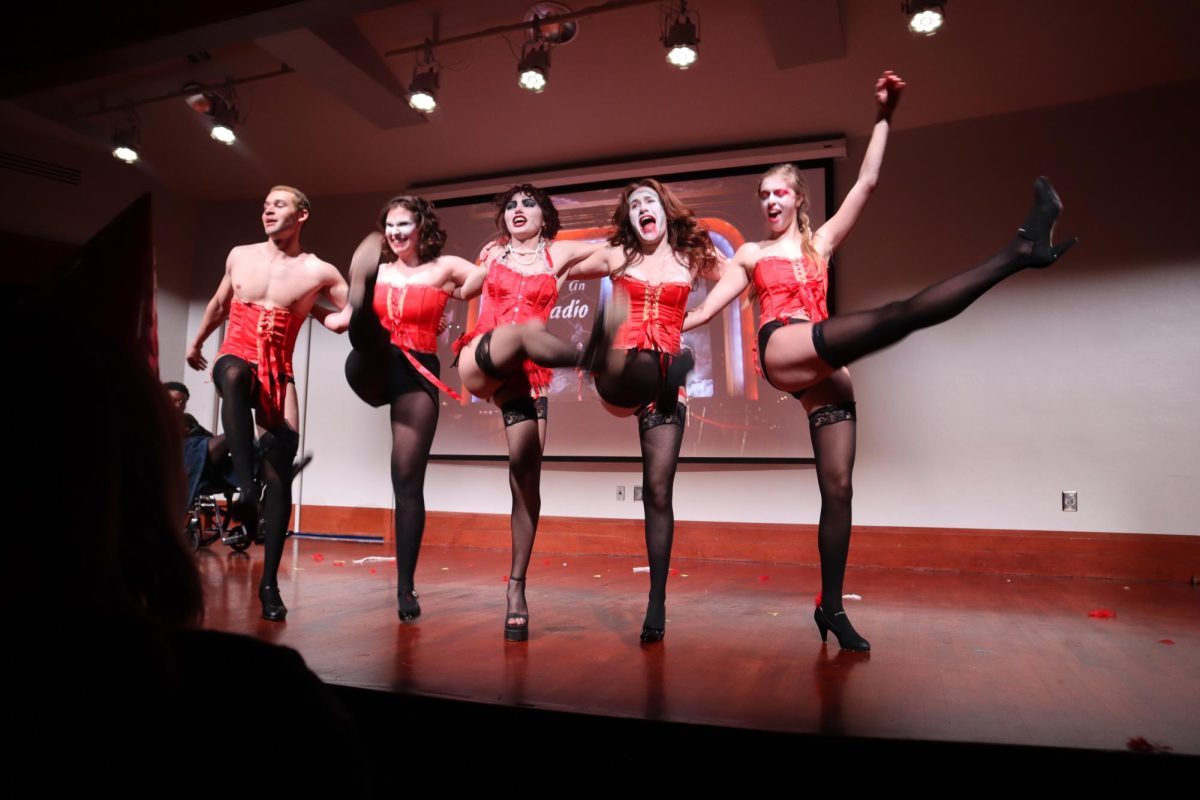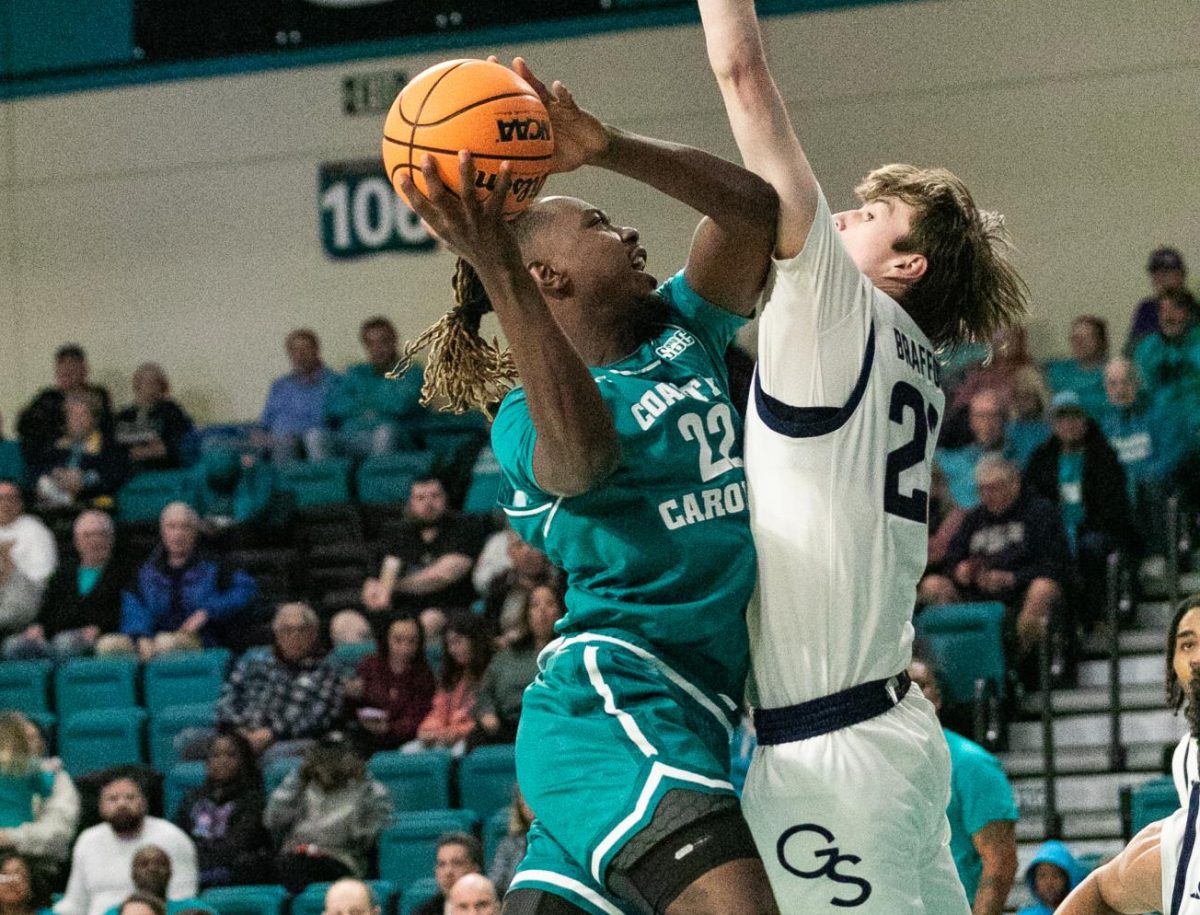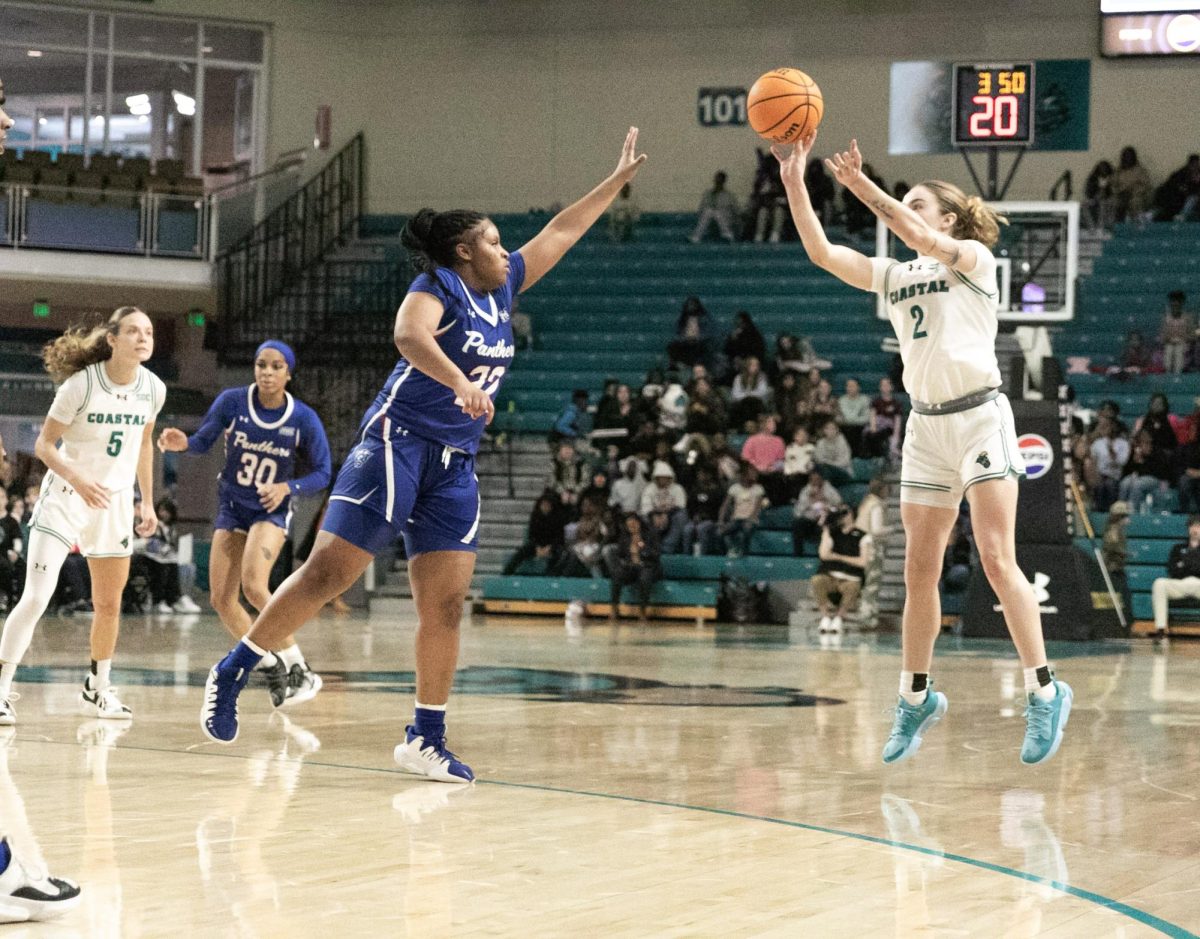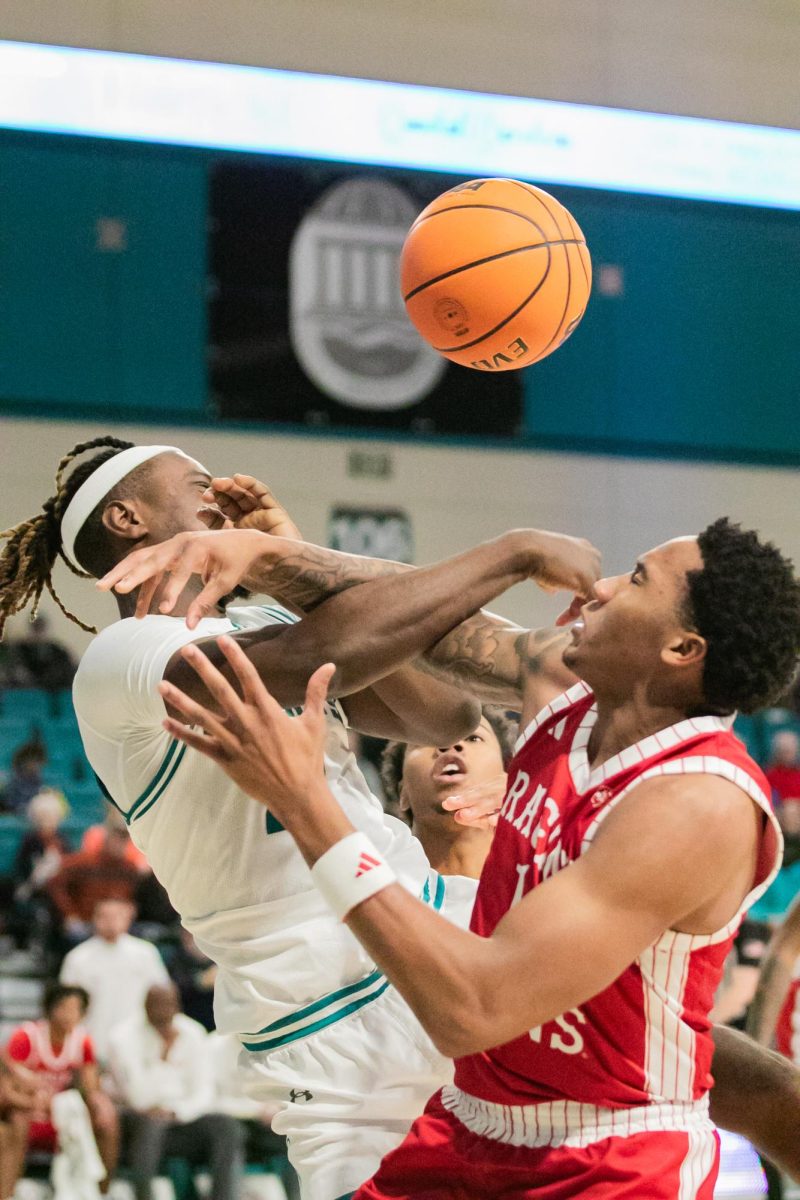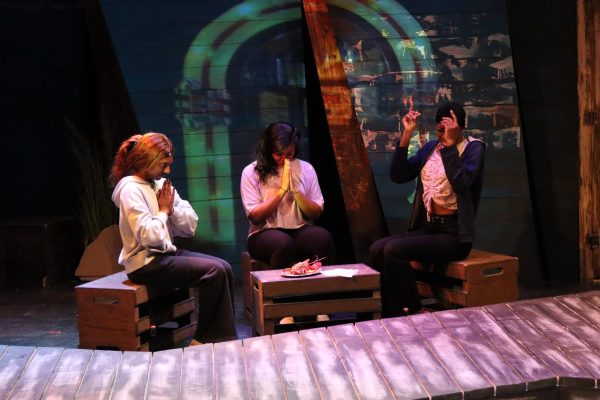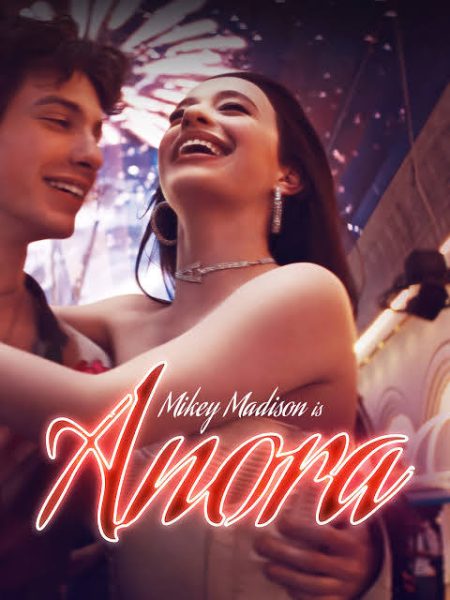Amanda Harberg recital kickstarts plans for future musical representation on campus
When most people think of classical composers, names like Beethoven, Mozart, and Bach are often the first that come to mind.
While each of these composers are renowned for their talent, they’re not exactly the easiest to get in contact with. This is an issue that three students sought to reconcile with the help of Eric Schultz, an assistant professor of woodwinds.
On Saturday, April 9, music education students Hailey Cornell, Diamond Gaston and Rachel Huggins performed a recital celebrating living composers in the Edwards Recital Hall. Here, they performed music by contemporary female composers like Amanda Harberg and Valerie Coleman. Schultz said the concert spawned from discussions with students about demographic limits of the standard repertoire.
“Most of the music that we play today is by white men from the year 1600 to 1900,” he said. “And unfortunately, it doesn’t represent our student body here at Coastal.”
Schultz said this recital was student driven and it started after one student, Cornell, discovered a clarinet sonata by Amanda Harberg.
“We started studying it and we just fell in love with it, and Hailey really fell in love with it,” Schultz said. “It’s a beautiful piece and this whole recital really just blossomed from that initial find of that clarinet sonata.”
Cornell, a junior music education major, said she had a unique experience when finding Harberg’s sonata. She said she discovered it amid the pandemic. Cornell said the day before she found it, she heard that a childhood friend of hers had died from COVID-19.
She said while researching Harberg’s sonata, she found a clip on YouTube of Harberg talking about her inspiration for the piece. Cornell said Harberg had written the piece after one of her own friends had died during the pandemic.
“Wow, this person literally experienced something that I just experienced,” she said. “That really just added a whole other level of meaning on top of it being from a woman who’s alive, who I can talk to and interact with.”
Cornell said she even had the opportunity to interview Harberg herself. She said this is where the benefits of playing music by living composers come in.
“The benefit of playing music by living composers is you get to interact with them in a way that you don’t really get to do when you’re playing Mozart,” Cornell said. “We have Valerie Coleman who’s actively reaching out to us, following us on social media, and comments on every other post we do.”
Valerie Coleman is a contemporary African American composer who Gaston said she is fond of. Gaston said she has been following Coleman since she took flute lessons in middle school.
“I started taking flute lessons, and my teacher didn’t like my embouchure, how I was playing, and I didn’t really know what embouchure was,” she said. “I looked up flute embouchure and there were a lot of lips, but none of those lips looked like mine.”
Gaston said this is when she saw a picture of Valerie Coleman and started researching more about her. Ever since then, she said she’s aspired to be like Coleman.
Huggins, a percussionist, said she had a different experience than her colleagues, but she’s glad to be involved.
“Even though we kind of had different experiences versus who we’ve played with or what we’ve played, or who we’ve been taught by,” she said, “I still think we all share this experience of being female musicians and just wanting to have a community and wanting to have people we can look up to.”
Huggins said she had experience playing music by women composers like Japanese marimba player, Keiko Abe. However, Huggins said it was also her desire to see more female music figures that inspired her to study music education.
“I’ve never had a female percussion teacher, so I’m really excited to get to be that for my future students,” she said.
In addition, Huggins said her older sister, a clarinet player, currently teaches music and she was an influence on her as well.
During the recital, Schultz then announced the “Representatoire Project.” With this project, he said he wants to expand upon the work done by these three students.
“The Representatoire Project takes what these students have done with the Harberg recital and is going to make that model into something that we can take into future years,” Schultz said, “whether that be with a Hispanic composer, an Asian composer, a nonbinary composer, it doesn’t have to be any one thing.”
He said he’s been so happy to see how supportive the Edwards College has been towards this project.
“I’m really grateful for that, because this kind of diversity and inclusion work does not always get this kind of support, and I don’t take that for granted.”
